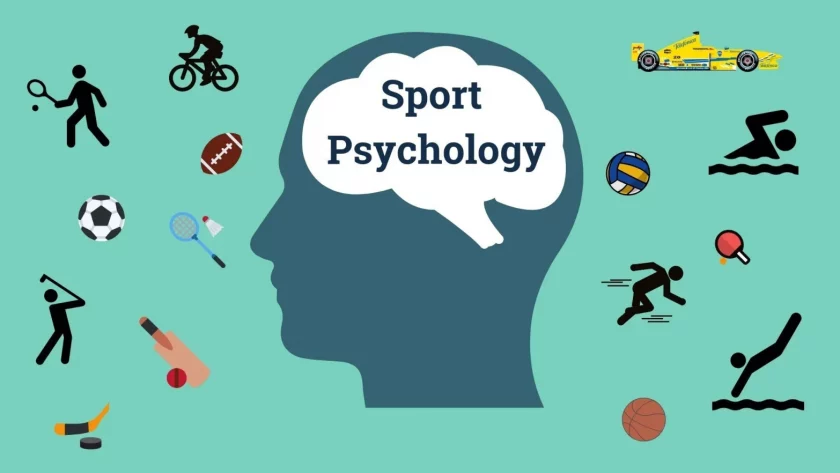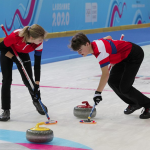The study of how psychological factors affect athletic performance, exercise, and physical activity is known as sports psychology. Sports psychologists look into how engaging in athletic activity might enhance one’s health and wellbeing. Athletes can use psychology to enhance both their physical and emotional well-being.
Additionally, a sports psychologist doesn’t only assist elite and professional players. This kind of expert also teaches regular exercisers and non-athletes how to enjoy sports and maintain an exercise regimen. They use physical activity and athletics to improve people’s life and mental health.
Sports psychology history
Sports psychology is a relatively new field of study in psychology; the first sports psychology research lab opened in 19252. The first American sports psychology lab closed shortly after (in the early 1930s), and American research in this field did not pick up again until the late 1960s, when there was a resurgence of interest.
the founding of the International Society of Sport Psychology (ISSP) in 1965.
Sports psychology was made available as a university course in educational institutions across North America by the 1970s.
By the 1980s, there was a more scientific emphasis on sports psychology. Researchers started looking into how psychology may be applied to enhance athletic performance. They also examined how stress reduction and mood enhancement could be achieved through exercise.
Sports psychologists’ specialties
There are various kinds of sports psychologists, just as there are various kinds of psychologists, including clinical psychologists, developmental psychologists, and forensic psychologists.
Sports psychologists in education
Psychological techniques are used by an educational sports psychologist to assist players in enhancing their athletic performance.
This involves showing students how to improve their performance on the court or field by using specific strategies like imagery, goal-setting, or self-talk.
Sports psychologists in practice
Clinical sports psychologists assist athletes who struggle with mental health issues including anxiety or depression. In this work, techniques from both psychotherapy and sports psychology are used. A clinical sports psychologist assists players in simultaneously enhancing their mental well-being and athletic performance.
Physical Therapists
An exercise psychologist assists individuals who are not athletes or regular exercisers in learning how to develop a workout habit. Some of the methods utilized in this study may be similar to those employed by other sports psychologists, such as goal-setting, mindfulness training, and the application of motivational strategies.
Sports psychology applications
The discipline of modern sports psychology is vast, and sports psychologists have a particular interest in a variety of different subjects.
Focused Attention
The capacity to tune out distractions (like a commotion of yelling fans) and concentrate on the work at hand is known as attentional concentration. This enables athletes to maintain their mental focus despite competing demands for their attention.
Deep breathing, being mindful, and paying attention to physical signals and feelings are common techniques that can be utilized for this goal. All of these can aid athletes in maintaining present-focused attention.
Mental fortitude
Sports psychology is becoming more and more interested in the topic of mental toughness. The phrase describes the psychological traits that are crucial for an athlete to achieve peak performance.
These qualities include an unwavering belief in oneself, the capacity to overcome obstacles, and an unquenchable will to succeed. Other qualities that contribute to mental toughness include responding constructively to situations, maintaining composure under stress, and maintaining control.
Setting goals and using visualization
Setting a goal and then visualizing each step to get there might help an athlete mentally get ready for practice or competition. Visualization entails forming an image in your head of what you “wish” to occur. This ability might help athletes visualize the result they are aiming for. They might picture themselves succeeding in a competition or doing a challenging movement, for example.
Inspiration and group building
Some sports psychologists collaborate with coaches and professional athletes to boost motivation and enhance performance. The study of motivation, a key topic in sports psychology, examines both extrinsic and intrinsic motivators.
External incentives like medals, cash, trophies, or social recognition are examples of extrinsic motivators. Intrinsic motivators originate from the individual, such as a strong desire to succeed or a sense of accomplishment after mastering a skill.
Sports psychology’s effects
From very young gymnasts (aged 8 to 13)9 to some of the best Olympians10, research suggests that employing different sports psychology strategies can help athletes of all levels perform better. Sports psychology also has an impact on other aspects of wellness.
One study, for instance, found that treating patients who are critically ill often causes clinicians to react negatively. However, doctors were able to better control these reactions when they utilized the same psychological techniques as athletes.11 This also enhanced the quality of their patient care.
Others contend that sports psychologists can significantly impact the reduction of obesity, particularly in children.12 A sports psychologist can do this by assisting youngsters in increasing their physical activity and their love of the activity.
Sports Psychology Methods
When assisting their customers, some professionals use a single method, while others employ a variety of sports psychology strategies.
Progressively calming
The advantages of relaxation methods for sportsmen are numerous. A rise in self-assurance, improved focus, and decreased anxiety and tension are a few of them. These things all contribute to higher performance.
Hypnosis
To assist their patients in quitting smoking, several medical practitioners utilize hypnosis. The similar method might be employed by a sports psychologist to assist their clients in improving their performance in their chosen sport.
According to research, hypnosis can be used to enhance performance for athletes competing in a range of sports, including basketball, golf, and soccer. Hypnosis includes putting someone in a state of concentrated concentration with increased suggestibility.
Biofeedback
Utilizing the feedback the body gives to observe how it behaves physiologically under stress is known as biofeedback (elevated heart rate, tense muscles, etc.). This knowledge can then be applied to modulate these effects and produce a biological response that is more favorable.
In more than 85% of the trials, utilizing heart rate variability biofeedback increased athletic performance, according to one systematic review. The use of biofeedback to lessen an athlete’s tension and anxiety is supported by more research.
Therapy using cognitive behavior
All types of people can benefit from cognitive behavioral therapy (CBT), which is used to help them recognize and alter harmful ideas and habits. It would therefore make sense that athletes would likewise gain from its effects.
One case study with a 17-year-old female cross-country skier found that CBT improved sport-specific behaviors while lowering performance anxiety. Another study looked at 16 NCAA Division I players who had had serious injuries and discovered that CBT improved their mental wellbeing as they recovered.




